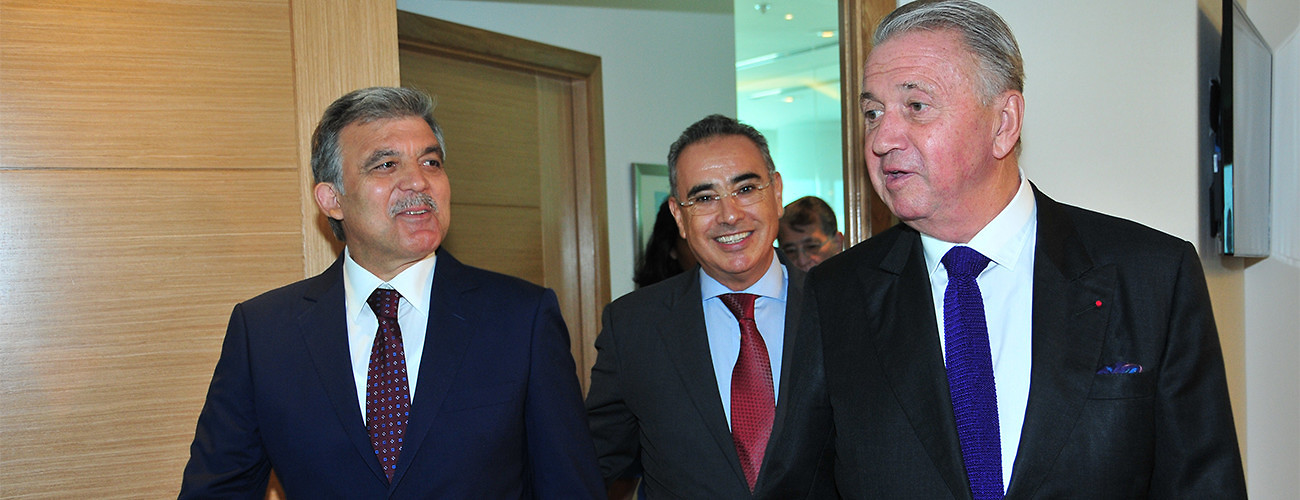“The current power vacuums and chaos in Iraq, Syria, Libya, and Yemen are essentially results of serious political mistakes, miscalculations, delusions, and blunders,” said Former Turkish President Abdullah Gul at an IPI MENA event in Manama, Bahrain, on September 15, 2015. Mr. Gul said that it is a priority to fill the power vacuum created by the chaotic environment in these countries.
IPI’s Middle East and North Africa office (IPI MENA) hosted Mr. Abdullah Gul today, the 11th president of the Turkish Republic, who served from 2007-2014, as a guest speaker at a high-level event under the theme “The Prospects for Peace in the Region: Ways and Means.”
In attendance were the Foreign Minister of Bahrain, Sheikh Khalid bin Ahmed Al-Khalifa, IPI President Terje Rød-Larsen, government officials, ambassadors, deans of Bahrain public and private universities, faith representatives, and members of the media.
Mr. Gul noted that the conflict in Ukraine, the financial crisis in Europe, and the socio-cultural effects of these are also affecting the Middle East indirectly, and vice versa. “The current situation harms everybody, all of us, everywhere, in this or that way. The risks are great, but I believe that solutions are at hand.”
Shaikh Khalid Al-Khalifa took the opportunity to speak about Bahrain’s stance in the region, specifically in regards to neighboring Iran. Referencing the recent nuclear deal, he said, “The nuclear deal is only dealing with one aspect of the problems coming from Iran.” He further explained that Bahrain and other countries in the region were facing other challenges from Iran, such as the training of terrorists, conducting a proxy war, and exporting weapons in the region. He stated, “If Iran takes one step, we will take two.”
IPI President Terje Rød-Larsen said civil war in Syria, Iraq, Libya, and Yemen are causing exceeding amounts of damage to human lives and physical infrastructure. Recruits from all over the world are joining radicalized terrorist groups and sectarian factions like Daesh in Iraq and Syria, spreading violence and brutality, and threatening governments’ ability to perform basic functions. He added, “The world continues to bear witness to these crises, but the international system is failing to respond adequately.”
Mr. Rød-Larsen, who has been deeply involved in the Middle East peace process, explained that the tangle of conflicting interests represented by different ethnicities, religious communities, political movements, and nationalities pose a particular danger.
Sheikh Khalid agreed with that sentiment, noting the MENA region would have to move away from identity politics towards politics of national aspiration; otherwise, neighboring countries with different ethnic or religious backgrounds would continue to struggle to work together.
The presentation came to an end with Mr. Gul making an appeal to the audience of leaders, intellectuals, diplomats, and businessmen. Despite the immense energy spent for peace, he admitted that the Middle East continued to be a hotbed of conflicts. He stated, however, “The ultimate solution lies in patient and inclusive political settlements, which will help convince the local people and leaders.”
IPI MENA Director, Nejib Friji opened the event held under IPI’s Global Leaders series, aimed at fostering a constructive and dynamic exchange of views between world leaders and the international relations community on a range of security, peacebuilding and development issues.








